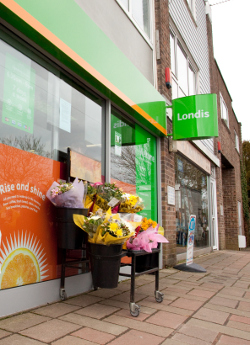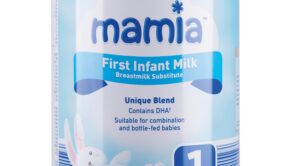Musgrave is down but a long way from out

Fionnuala Carolan examines the impact of disappointing UK results for the Musgrave Group and predicts its current difficult spell will prove short-lived
21 May 2014
The Musgrave annual results for 2013 revealed that the company is struggling with its UK arm of the business. The group reported that it has written down €131 million worth of assets in the UK, due to problems with the management of the Budgens and Londis brands.
In this issue, Dan White examines why successful retail concepts often fail when the company tries to emulate them in a different market. Musgrave’s convenience brands in Ireland are performing well and SuperValu is creeping up behind Tesco as the dominant multiple here, yet at the same time Musgrave’s UK convenience models are floundering. One would imagine that the Irish and British markets are relatively similar. After all, as White points out, Tesco, a UK concept, has been a roaring success in the Irish market. However I spoke to an Irish retailer recently who runs stores in the UK and he said that there are fundamental differences between the markets. While the Irish love in-store theatre, brought to us first by Feargal Quinn in Superquinn, the English don’t go in for this much. They don’t particularly want to engage with the fishmonger or the butcher but are happy to get in and get out as quickly as possible. The Irish enjoy this contact in their local store and want to be able to ask about the food they are buying and where it has come from and listen to the retailer’s expertise. While the markets are similar in so many ways, there are subtle differences which can determine success or failure.
Another reason touted for Musgrave’s problems in the UK is that the business expanded too quickly. Musgrave entered the UK market in 2000 when it invested in the Budgens brand and bought it outright two years later for €280 million. Then in 2004 it bought Londis for €73 million. Chris Martin has admitted that the company did not "maintain sufficient discipline" with its British independent retailers because it was so focused on growing store numbers.
Musgrave says a recovery programme has been put in place with Peter Ridler, former Monsoon Accessorize boss appointed as managing director of the UK business. Donal Horgan and other members of the UK management team have stood down and the company intends to clear the decks in terms of underperforming stores and rid the group of the deadwood.
The group is still strongly capitalised with net assets of €314 million and while shareholders are said to be disappointed with the performance in the UK they are still reaping a not too shabby €16.9 million dividend.
In the meantime Musgrave’s Irish brands are all performing well in the context of the tough market conditions. The rebranding of Superquinn has been a considerable investment costing over €12 million this year but the long- term benefits of this are yet to be seen. The investment has greatly increased SuperValu’s presence in the Dublin market. On top of this, the latest share data from Kantar Worldpanel in Ireland shows SuperValu holds 25.1% of the market, only one percent behind leader Tesco. The supermarket was also recognised by RepTrak as the most reputable Irish brand in the country this month.
In addition Centra is now the fastest growing convenience brand in Ireland and there are another 20 Centras scheduled to open this year. We haven’t seen this type of store growth since 2007. So while the company is experiencing a difficult spell, I wouldn’t worry too much about Musgrave’s future. Something tells me that this time next year we will be seeing a very different set of annual results.
Fionnuala Carolan
Editor
ShelfLife magazine



 Print
Print






Fans 0
Followers